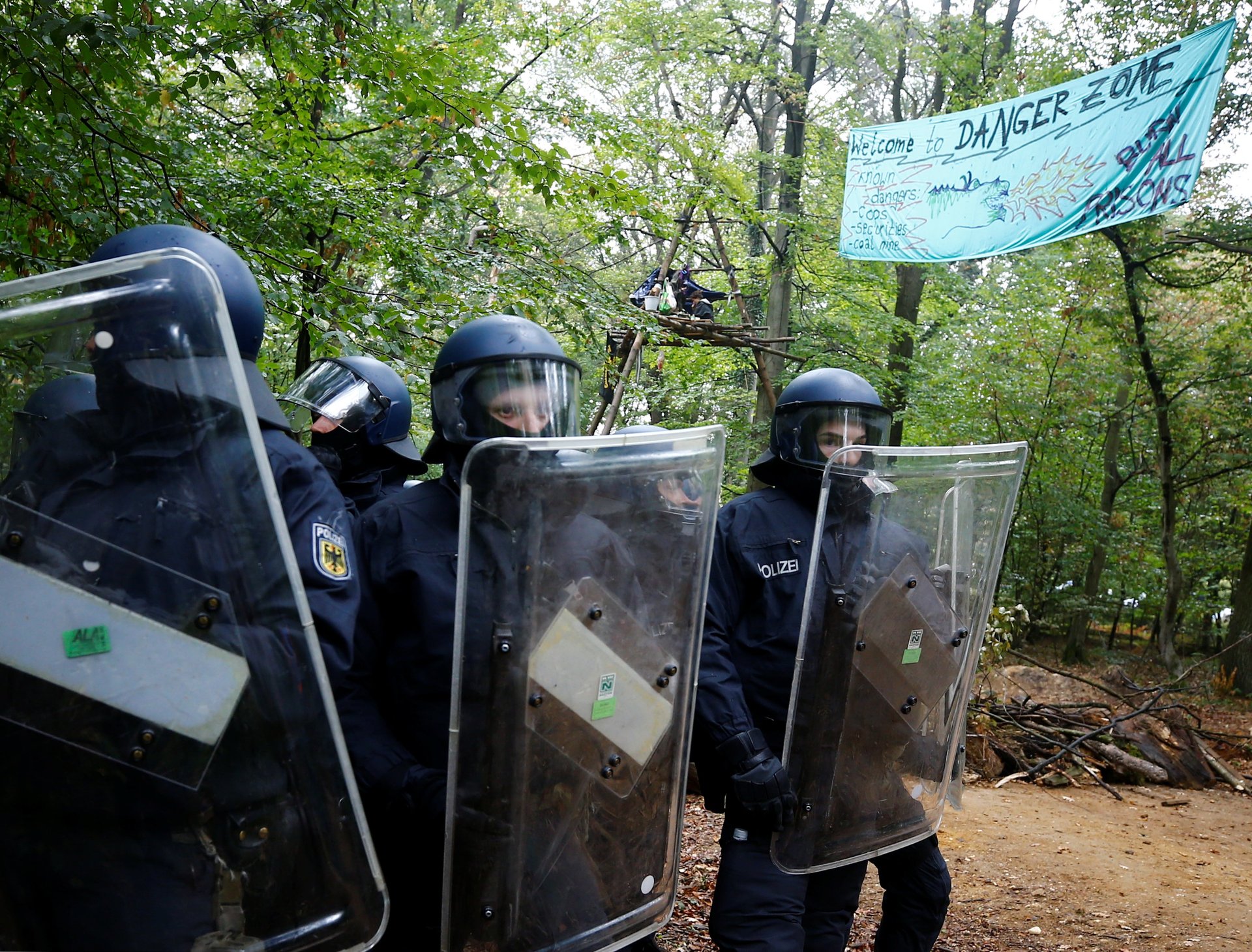Germany is razing a 12,000-year-old forest to make way for a coal mine
Germany may have set laudable goals for its ambitious “Energiewende”—or shift to a low-carbon economy—but it is still struggling to free itself from fossil fuels, in particular electricity generated from coal’s dirtier cousin lignite. In the latest demonstration of this struggle, an ancient forest is about to be razed in order to expand what is already Europe’s largest opencast mine.


Germany may have set laudable goals for its ambitious “Energiewende”—or shift to a low-carbon economy—but it is still struggling to free itself from fossil fuels, in particular electricity generated from coal’s dirtier cousin lignite. In the latest demonstration of this struggle, an ancient forest is about to be razed in order to expand what is already Europe’s largest opencast mine.
Today (Sept. 13), the last 200 acres of Hambach Forest in the state of North Rhine-Westphalia were a scene of battle between environmental activists and German energy company RWE, which owns the land and wants to clear it for mining. German police in riot gear arrived in force to evict activists from their treehouses.
The protestors have occupied the forest for the past six years, foregoing basic creature comforts like running water and electricity in their efforts to stop RWE from chopping the trees down. Many of them were evicted in September, and today police started dragging those remaining out by force.
State premier Armin Laschet told local broadcaster WDR (link in German) on Wednesday that the Hambach Forest was “an illegally occupied area” and accused protesters of violence.
While Germany is generating huge amounts of energy from renewables, the country has a strong coal lobby, and that lobby’s influence coupled with an initial shortfall in energy generation due to Angela Merkel’s 2011 decision to phase out nuclear power within 10 years has left the country stuck with fossil fuels longer than it intended.
As a result, the coalition government in January agreed that the country’s 2020 climate target of reducing CO2 levels by 40% from their 1990 levels was unachievable. Environmental think-tank Agora Energiewende said (link in German) in September 2017 that Germany’s emissions had only dropped by 28% from 1990 levels.